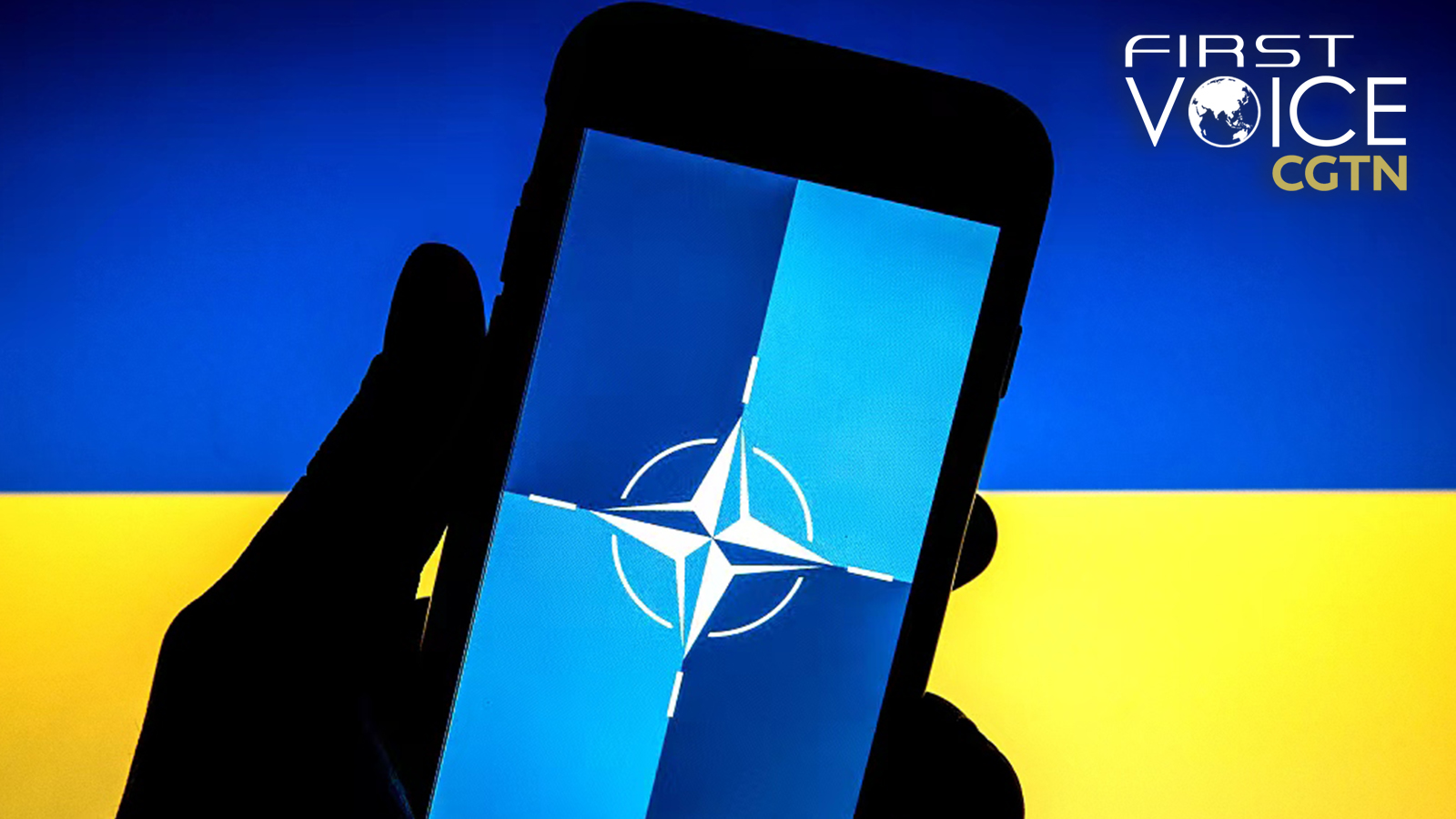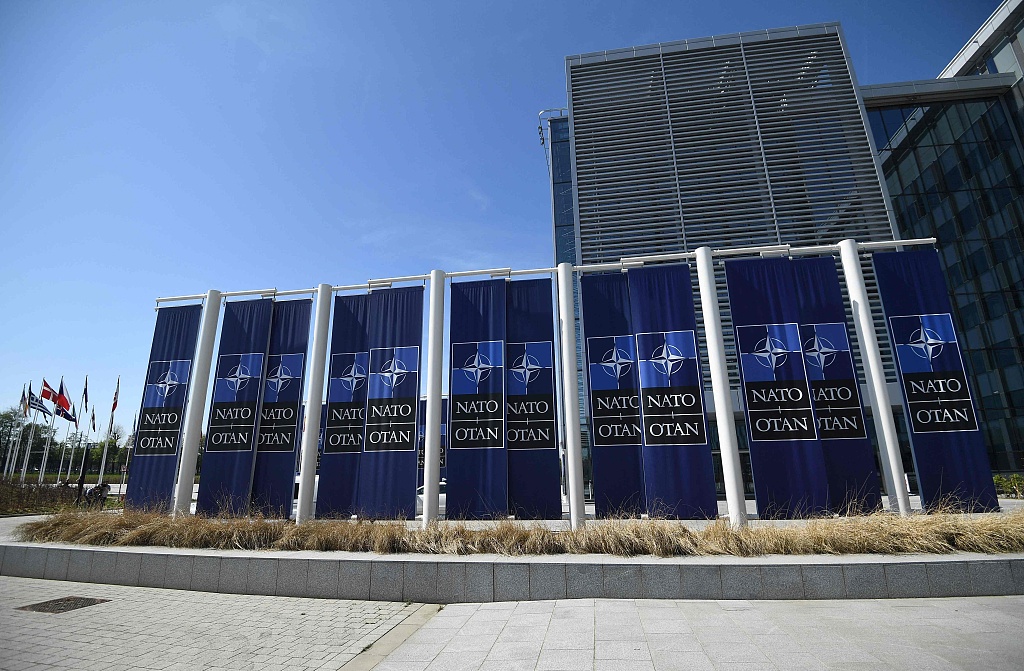
Editor's note: Editor's note: CGTN's First Voice provides instant commentary on breaking stories. The column clarifies emerging issues and better defines the news agenda, offering a Chinese perspective on the latest global events. This First Voice article is written by CGTN Special Commentator William Jones, a former White House correspondent for Executive Intelligence Review. The article reflects the author's opinions, and not necessarily those of CGTN.
As NATO launches its conference in Vilnius, Lithuania, in preparation for increased military operations in the stalemated Ukraine conflict, and is for the first time inviting in countries from the Asia-Pacific region, Japan and South Korea, in what they hope to be an extension of the NATO tentacles to the Pacific region, the much-touted "NATO unity" seems to be more illusion than reality.
Firstly, there is the internal dissension over how to handle the conflict in Ukraine. The United States will provide "cluster bombs" to Ukraine, which have been banned by over 100 countries due to the significant risk they pose to civilian populations, including many of the NATO countries who have already expressed opposition to the U.S. decision to send them to Ukraine.
A main topic of discussion in Vilnius will be the relationship between Ukraine and NATO. Ukraine wants in now, and is supported by some of nations like Poland and the Baltic states. Joe Biden, undoubtedly with the support of many other NATO countries, said no – at least, not yet. Such a decision now would mean that NATO has officially been at war with Russia, and then all bets are off. Even setting a timetable may be difficult, as Ukraine has a long way to go in coming up to par with NATO requirements.
NATO has expanded this year with the addition of Finland, but its Swedish neighbor, which intended to come in at the same time as Finland, was held up by objections from NATO member, Türkiye – and Hungary – which feels that the Kurdistan Workers' Party (PKK), considered by Türkiye as a terrorist group, has freedom to operate in the ultra-liberal climate of Sweden.
Even the unity among the traditional nations of Western Europe is wearing thin. The massive social unrest in France is reflective of the population's opposition to French President Emmanuel Macron's war policy. Similarly in Germany, recent election losses for Olaf Scholz's Social Democrats have been fueled by the major economic difficulties Germany has experienced in its desire to stick with Biden on the Ukraine war policy. The "stalwart" Netherlands is now going through a change of government, which creates uncertainty about its future position with regard to the war in Ukraine. NATO was intent on electing a new secretary general this year, but dissension over the candidates, and a personal appeal from Biden, convinced the sitting Secretary General Jens Stoltenberg to continue in his post.

Banners with the NATO logo in front of the NATO headquarters in Brussels, Belgium, April 19, 2018. /VCG
Banners with the NATO logo in front of the NATO headquarters in Brussels, Belgium, April 19, 2018. /VCG
The addition of Japan and South Korea as "observers" at the summit presages an attempt to expand the NATO alliance to the Asia-Pacific region. Ostensibly, this is because of the increased activities of Democratic People's Republic of Korea's leader, Kim Jong Un. In reality, it is primarily predicated on the U.S. desire to build a semi-military alliance of sorts in the new "Indo-Pacific" construct, which is aimed at countering the growing influence of China in the region.
Japanese Prime Minister Fumio Kishida, who has been most fervent in his desire to ally himself with the Biden policy, has been losing popularity among the Japanese people since his fanfare Hiroshima G7 Summit earlier this year, due to his proposed tax hikes that are to finance his increased defense spending.
Similarly with South Korean President Yoon Suk-yeol. While his position does not seem to be in danger as a result of his desire for better relations with Japan and the U.S., his complacency with regard to Japan's decision to release nuclear-contaminated water at Fukushima Daiichi Nuclear Power Station could be a source of trouble if it leads, as people fear, to serious damage to fish and wildlife in the waters around South Korea.
More importantly, the global fallout of the Ukraine crisis is creating serious economic and financial difficulties for both of these countries, whose relationship with China, the main engine of growth in the region, remains of vital importance.
Even the United States is not immune to the fallout of this undeclared war with Russia using Ukraine as a surrogate. Both Donald Trump, still the leading Republican candidate for president, as well as the growing opposition within the Democratic Party, led by presidential challenger Robert F. Kennedy Jr., is in the process of creating a more vocal anti-war movement in the United States. Joe Biden won the presidency largely on his claims to end the war in Afghanistan. However, for the upcoming one, he might lose on the basis of his determination to continue a war with Russia.
The unity claimed by NATO may be a mile-wide, but it is only an inch deep. The slightest turbulence might disrupt it entirely.
(If you want to contribute and have specific expertise, please contact us at opinions@cgtn.com. Follow @thouse_opinions on Twitter to discover the latest commentaries in the CGTN Opinion Section.)